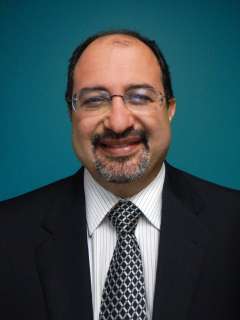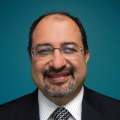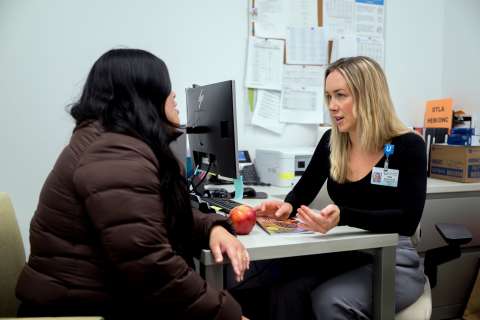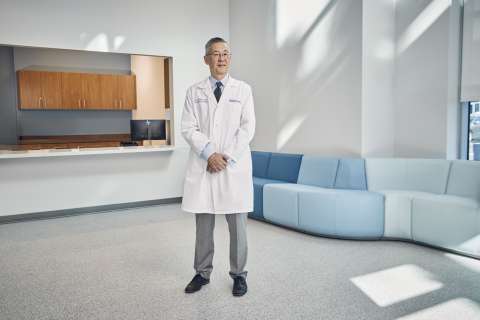It’s been four decades since the American Cancer Society first recommended annual mammograms starting at age 40 for the early detection of breast cancer in women — a one-size-fits-all approach meant to slow a disease that still kills more than 43,000 women in the United States each year.
A team of University of California researchers want to change that equation by adding a powerful new tool to their cancer detection arsenal — precision medicine aided by advances in genetic testing.
As part of the UC’s Women Informed to Screen Depending on Measures of Risk (WISDOM) study, Arash Naeim, MD, PhD, is working as UCLA’s principal investigator on an effort that uses a saliva test to detect nine genetic mutations — including BRCA 1 and 2 — that can lead to an increased risk of breast cancer.
Though mammograms and other imaging remain important components of breast cancer detection, researchers say guidelines for how frequently women need mammograms should be reassessed to take family history and other genetic factors into account.
“A lot of the screening studies tend to be large, but I think this is the largest one that's trying to do a risk‑stratified approach,” said Dr. Naeim, chief medical officer for clinical research at UCLA Health. “The average woman has a one in eight chance of developing breast cancer in her lifetime. Now, of course, that's the average across everyone. There are definitely differential risk factors for developing breast cancer.”
Just having other people in the family — especially under age 40 — with cancer raises the risk, said Dr. Naeim, director of informatics at the UCLA Jonsson Comprehensive Cancer Center.
“The recommendations for mammograms are variable, especially in women age 40 to 50,” he said. “It may be that for the average woman or low‑risk women, they don't even have to start until they're 50. So part of the goal of the study is to try to figure that out.”
The five-year WISDOM study, led by Laura J. Esserman, MD, director of the UCSF Carol Frank Buck Breast Care Center, was launched in 2017. An estimated 30,000 women are enrolled in the study with a target goal of more than 50,000 women. Dr. Naeim says researchers are looking at expanding the time frame for the study by a year to include more participants.

“At least for a short period of time, we have an opportunity to still offer the study to more people, and so we want to get the word out,” he said.
The study is open to women ages 40 to 74 who reside in the United States. It’s a collaborative effort among five UC campuses, as well as facilities in North and South Dakota that are part of Sanford Health.
“More recently, over the last six to eight months, there have been other sites in other parts of the nation that have also joined,” Dr. Naeim said. “UCLA is the top accruing UC site and a close second to the whole Sanford health system, which basically comprises two states, North and South Dakota. Our hope is to be the leading site in the study in the not‑too‑distant future. So we have a huge interest in trying to do these sorts of studies, to be actively involved.”
UCLA Health researchers have been involved with similar studies in recent years, but this is the first to pair genomics and imaging, Dr. Naeim said.
“Rather than just letting people know that they might be high risk, let's define how their integral screenings should be different based on their risk, which we weren't doing before,” Dr. Naeim said. “We're giving people personalized screening recommendations based on their genomics and personal family history and their own breast density.”
He said someone who is deemed very low risk, for example, might be advised to get a mammogram every other year. But someone who is deemed high risk might be told “'not only should you get a mammogram every year, but you should maybe get an MRI every six months,'” Dr. Naeim said.
With advances in technology it’s time to move away from age-based recommendations, he said.
“The drivers of most cancer screenings, largely, are based on biological age, which makes a certain amount of sense, because as one ages, the risk of breast cancer or any type of cancer increases,” he said. “It just so happens we now know more than people's age, and that allows us to take into account other types of risk factors, like genetics and family history."
Learn more about the WISDOM study or join the study at UCLA Health.
Tina Daunt is the author of this article.




